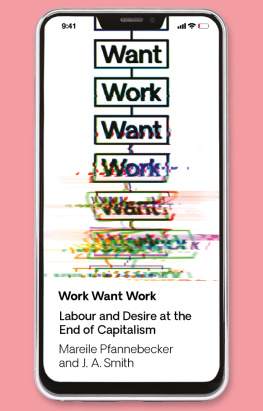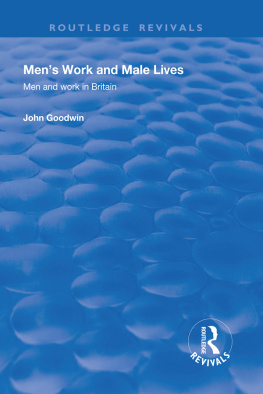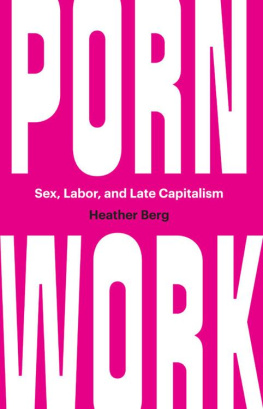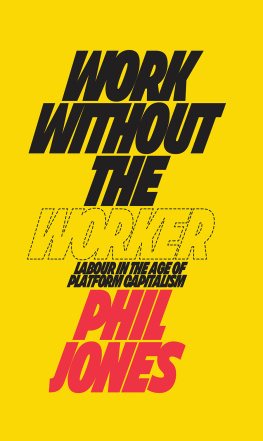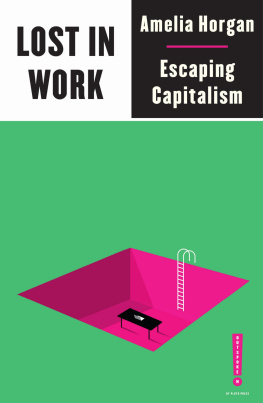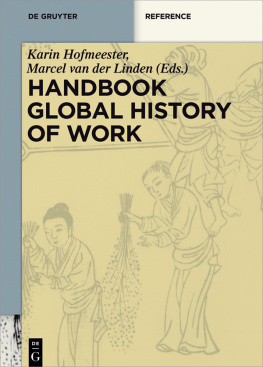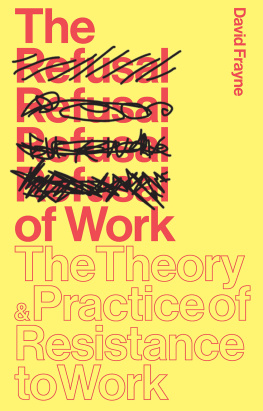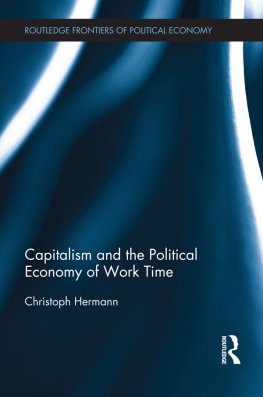
Desirability equals disposability: it is on the basis of this diabolical logic that global digital capitalism puts all our lives to market in myriad ways that have long been familiar to the most marginalized among us. At the same time, the deep technological interconnectedness of contemporary human lives offers new possibilities for redistribution, communisation and unwork. How can todays Bartlebys, in solidarity with each others desires, rebuild the ability to say I would prefer not to together on this terrain and, going beyond that, determine what it is we want? Combining an unprecedented overview of contemporary paradoxes in the politics of anti-work with a fresh and sophisticated argument for a liberatory post-capitalist horizon predicated on sharing limits, Work, Want, Work is a marvellously compact, well-written, informative and thoughtful book.
Sophie Lewis, author of Full Surrogacy Now: Feminism against Family
About the authors
Mareile Pfannebecker is a writer and translator based in Manchester. She has published on Shakespeare, Renaissance travel writing, and critical theory.
J.A. Smith is the author of Other Peoples Politics and Samuel Richardson and the Theory of Tragedy . He is a lecturer in the English department at Royal Holloway, University of London.
WORK
WANT
WORK
Labour and desire at the
end of capitalism
MAREILE
PFANNEBECKER AND
J.A. SMITH

Work Want Work: Labour and Desire at the End of Capitalism was first published in 2020 by Zed Books Ltd, The Foundry, 17 Oval Way, London SE11 5RR, UK.
www.zedbooks.net
Copyright Mareile Pfannebecker and J.A. Smith 2020
The right of Mareile Pfannebecker and J.A. Smith to be identified as the authors of this work has been asserted by them in accordance with the Copyright, Designs and Patents Act, 1988
Typeset in Galliard and Garamond by Swales & Willis Ltd, Exeter, Devon
Cover design by Alice Marwick
Cover illustration iStock/turk_stock_photographer
Printed and bound by CPI Group (UK) Ltd, Croydon, CR0 4YY
All rights reserved. No part of this publication may be reproduced, stored in a retrieval system or transmitted in any form or by any means, electronic, mechanical, photocopying or otherwise, without the prior permission of Zed Books Ltd.
A catalogue record for this book is available from the British Library
ISBN 978-1-78699-727-2 hb
ISBN 978-1-78699-728-9 pb
ISBN 978-1-78699-729-6 pdf
ISBN 978-1-78699-996-2 epub
ISBN 978-1-78699-730-2 mobi

Dedicated to the hundreds of thousands of activists who were politicised between 2015 and 2019, and fought to try and end the painful developments we describe in this book.
Contents
This is the new lifework regime in the West, where all you do is work, and everything you do can be put to work. When youre working for money, more of you is being monetised, in more ways, and better, than ever before. Theyve got you on your breaks, theyve got you in the bathroom, theyve got your smiles, your wit, your working independently but thriving as part of a team, and theyve got your well-being. Youre doing stuff thats outside your remit, job description, and training, and youre doing stuff it used to be other colleagues job to do. If youre unemployed, you still get put to work, and someone else is still going to make money out of it. After work, its shadow work, and that used to be someone elses job and livelihood too. Youre typing in train ticket details, scanning barcodes, bagging groceries. It doesnt matter what job you tell people you do. Everyones a shop assistant, a train conductor, a waiter, a travel agent (if youre lucky ), and a bank manager. Now youre home and youre still getting those work emails, or if you drive for Uber, ride for Deliveroo, or cam on Snapchat, youre still getting those jobs in. Even if no one will work all twenty-four hours of the day, for the first time in history, no moment, place, or situation now exists in which one can not .
Your fun looks like work too. Your social media is a continuously rolling modelling portfolio, show-reel, and curriculum vitae (even when a bad post gets you fired); and video games focus less on fighting and shooting, than on simulating managerial labour. Meanwhile its the platforms owners who derive value from the labour of your laziness, your boredom, your desire, your anger, your trauma. And if none of this applies to you, if you work illegally, if you cant work, or try to say, I would prefer not to, you might just disappear.
Theodor Adorno wrote at the end of the 1960s of the perniciousness of the concept of free time, contrasting it with his own ideal of a scholarly life of unalienated labour, in which there is no hard and fast opposition between my work itself and what I do apart from it. The growing industry for organised leisure was a con, obscuring the reasonableness of the philosophers demand that work itself should be pleasant and interesting: not something we feel constantly compelled to distance our true selves from, eager to escape at the end of the day. Ironically, it was lifework that answered Adornos call. Theres no hard and fast opposition between work and non-work now either, and your true self is not only welcome at the workplace whether its Pret or JPMorgan Chase in the emotional and affective labour we are all expected to perform, your true self has to be there.
This book examines together several much-debated changes in work since Adornos time to show that they are importantly interconnected. It claims that what we call the lifework regime has imposed on the West the following related ruptures. In , a Young-Girlification, where a quasi-adolescent self-commodification increasingly defines all other forms of work-based subjectivity.
We hope there is political potential simply in recognising these processes as interconnected, but we also examine over the course of this book five existing attempts to respond to the problem of work. In the politics of the post-2016 populist moment, politicians of the right and left are invoking the era of the New Deal and post-war consensus as a time of stable employment, the policies of which could save us from the problems described above. Young radicals and anti-work activists make the apparently opposite demand for a hyper-technologised post-work future; while an under-examined tradition of continental philosophy has resorted to art and literature to show the lengths one would have to go to imagine a kind of community that is not organised around work. In , we examine the alleged post-work programme of Silicon Valley, with its model of extracting value, not from conscious labour, but from unconscious and often destructive kinds of desire in the form of data. We contrast this with a new wave of cultural criticism appearing in the late 2010s, which has in common the surreptitious demand that we repurpose our desire: to take the desires that have been so put to work by digital capitalism and redirect them as a means of breaking the lifework regime.
A conversation is staged over three decades in the work of Alexandre Kojve, Georges Bataille, Maurice Blanchot, Michel Foucault, Jean-Luc Nancy, and Giorgio Agamben, around these thinkers shared and often conflicting use of the term dsuvrement : literally unworking, but also inoperability, the absence of work, and the absence of a work. Less frequently taken up in scholarship on work than the vocabulary of works three classical interrogators, Karl Marx, mile Durkheim, and Max Weber, the terms usefulness to the theory of work is in recognising not-working as something more than just a passive withdrawal of effort.
Next page
